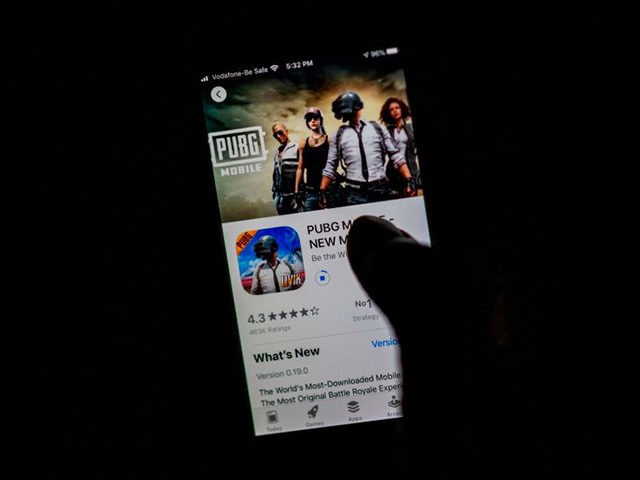The Indian government announced Wednesday that it would ban 118 more Chinese smartphone apps, including the immensely popular video game called Player Unknown’s Battlegrounds, or PUBG for short.
The mobile version of PUBG is a Chinese product with over 50 million players worldwide. The game is also very popular for e-sports competitions. The app is a free download provided by China’s massive Tencent corporation, but in-game purchases generate huge amounts of revenue. The PUBG ban is arguably the biggest development in India’s digital crackdown since it began with a ban on the video micro-blogging application TikTok.
Other major Chinese apps named in Wednesday’s third round of blacklisting included Alipay, the e-commerce system developed by the Alibaba Group, and the Baidu search engine. Officials also banned less well-known utilities, e-commerce applications, and games.
“The apps have been banned as they are engaged in activities prejudicial to sovereignty and integrity of India, defense of India, the security of the state and public order,” India’s Ministry of Electronics and Information Technology said Wednesday.
“This move will safeguard the interests of crores of Indian mobile and internet users. This decision is a targeted move to ensure safety, security, and sovereignty of Indian cyberspace,” the ministry added.
The ministry said it has received numerous complaints about surreptitious data harvesting and misuse of user data by “elements hostile to national security and the defense of India,” activity the Indian government views as a violation of its sovereignty, so “emergency measures” had to be taken.
TechCrunch quoted India’s Software Law and Freedom Center, a digital rights advocacy group, expressing concerns about the legality of the software bans and the process by which banned applications were chosen.
“India, unfortunately, lacks both a data protection law and a comprehensive cybersecurity policy. The ban has highlighted the need for transparency and accountability in the committee proceedings as well as in the executive decisions banning applications or websites,” the Center said.

COMMENTS
Please let us know if you're having issues with commenting.